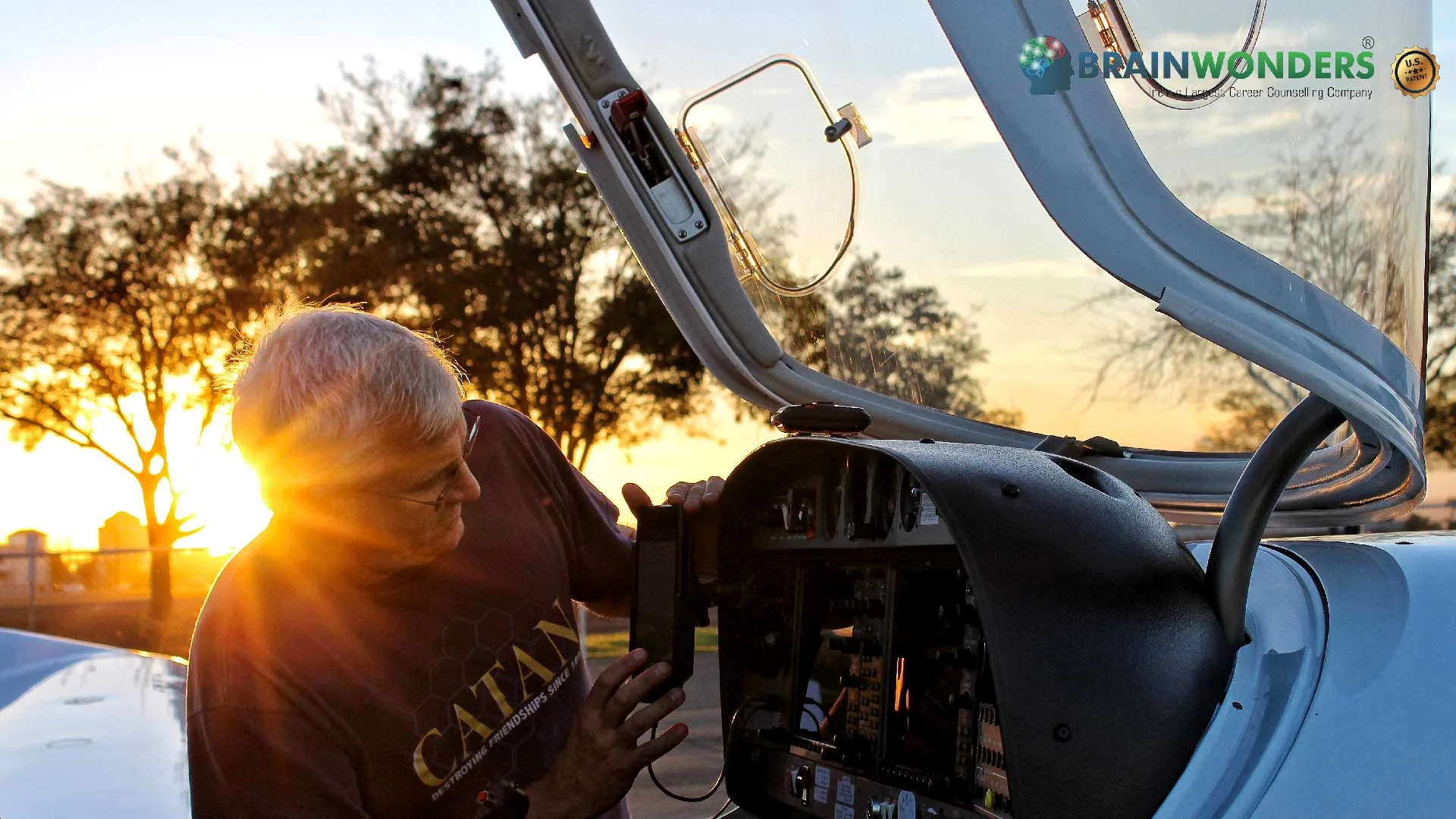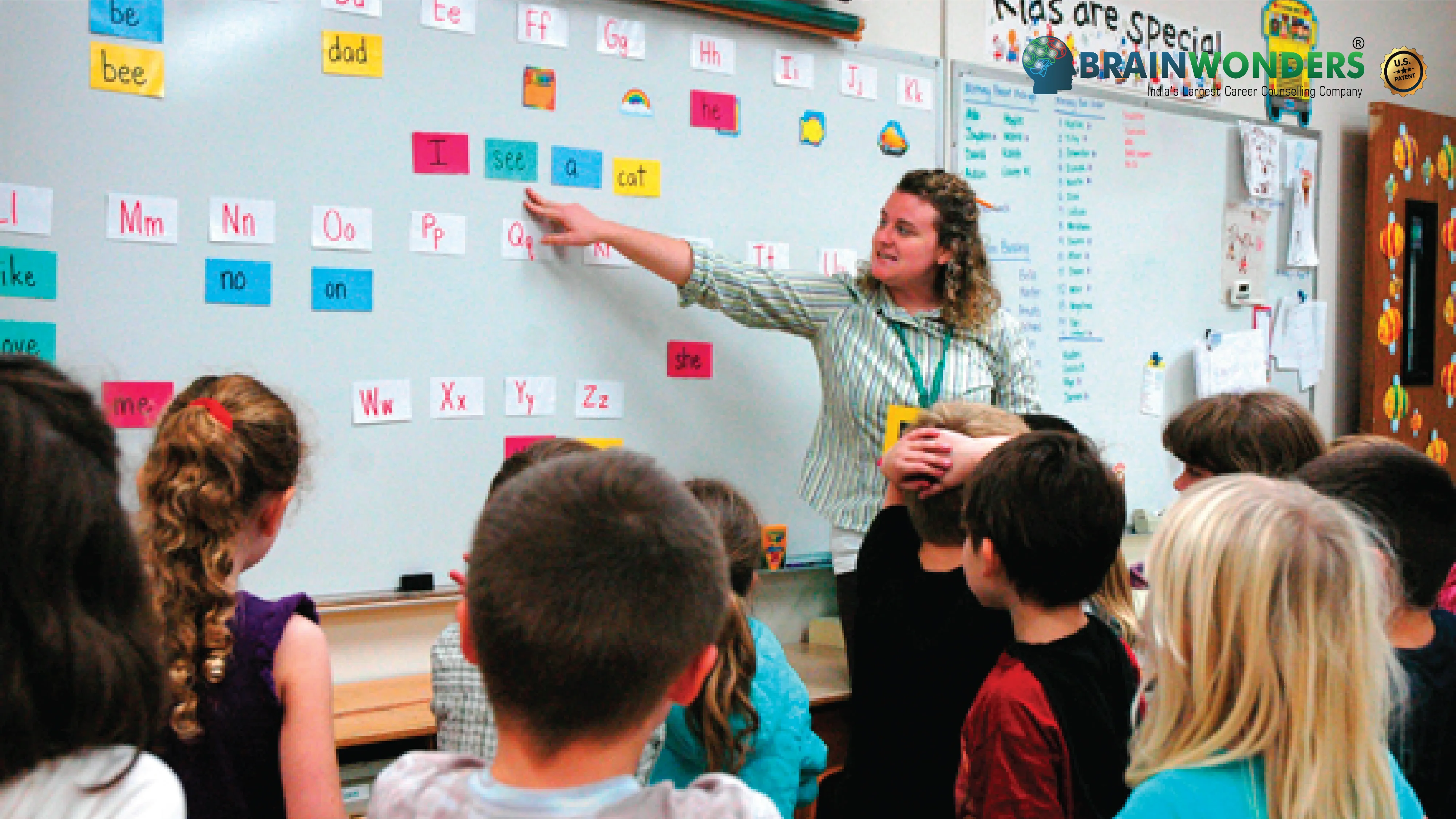How to become a Special Education Teacher, Secondary School
Overview, Courses, Exam, Colleges, Pathways, Salary

Overview
Who is Special Education Teacher, Secondary School ?
A Special Education Teacher in a Secondary School is a professional who specializes in educating students with special needs at the secondary level. These teachers work with students with various disabilities, such as learning disabilities, emotional or behavioural disorders, autism spectrum disorders, or physical impairments.
Their primary role is to design and implement individualized education plans (IEPs) for students with special needs tailored to their unique requirements. They provide specialized instruction, support, and accommodations to help students overcome challenges and succeed academically. Special Education Teachers collaborate with other educators, parents, and support staff to ensure a cohesive and inclusive learning environment.
In addition to teaching academic subjects, they may also focus on developing social skills, communication abilities, and independent living skills. These professionals possess a deep understanding of various disabilities and employ diverse teaching strategies and assistive technologies to cater to student's diverse needs. Special Education Teachers in secondary schools play a vital role in fostering an inclusive and supportive educational experience for students with special needs.
Typical day at work
What does Special Education Teacher, Secondary School do?
A Special Education Teacher in a Secondary School performs various duties and responsibilities to support students with special needs. Here are some of the critical tasks they undertake:
- Individualized Education Plans (IEPs): Special Education Teachers develop and implement IEPs for each student with special needs. These plans outline the student's learning goals, accommodations, modifications, and support services required.
- Instructional Design: They design and adapt instructional materials and methods to meet students' individual needs. They use different teaching strategies, visual aids, assistive technologies, and multisensory approaches to enhance learning.
- Classroom Instruction: Special Education Teachers instruct students with special needs in various subjects. They adapt the curriculum and employ specialized teaching techniques to ensure students can access and understand the material.
- Behaviour Management: They establish and maintain a positive and inclusive classroom environment. Special Education Teachers implement behaviour management strategies and interventions to address challenging behaviours and promote positive social interactions.
- Collaboration and Communication: They work closely with general education teachers, school administrators, support staff, and parents to coordinate services and ensure the integration of students with special needs in the regular school environment.
- Assessment and Progress Monitoring: Special Education Teachers assess students' academic and functional abilities, track their progress, and adjust instructional strategies accordingly. They may conduct formal and informal assessments to measure student growth.
- Individual and Group Support: They provide individualized and small-group instruction to address specific needs. They offer students additional assistance, remediation, or enrichment to help them achieve their educational goals.
- Transition Planning: Special Education Teachers assist students with special needs in transitioning from secondary school to post-secondary education, vocational training, or employment. They help develop transition plans and provide guidance on available resources and support services.
Abilities and Aptitude needed
What are the skills, abilities & aptitude needed to become Special Education Teacher, Secondary School?
To become a Special Education Teacher in a Secondary School, several skills, abilities, and aptitudes are crucial. Here are some of the key ones:
- Knowledge of Special Education: A deep understanding of special education laws, policies, and best practices is essential. Knowledge of different disabilities, learning strategies, and instructional techniques specific to special needs students is essential.
- Patience and Empathy: Special Education Teachers must demonstrate patience and empathy towards their students. They should be understanding and compassionate while working with students who may face challenges in their learning or behaviour.
- Communication Skills: Effective communication skills are vital for collaborating with students, parents, colleagues, and other professionals. Special Education Teachers must convey information, actively listen, and adapt their communication style to meet individual needs.
- Adaptability: Adapting teaching methods, materials, and strategies to cater to diverse learning styles and needs is essential. Special Education Teachers must be flexible and open to modifying their approaches based on individual student requirements.
- Organization and Time Management: Managing paperwork, IEPs, assessments, and lesson planning requires strong organizational skills. Special Education Teachers must be able to prioritize tasks, meet deadlines, and maintain accurate records.
- Problem-Solving Skills: Special Education Teachers should be skilled in identifying and analyzing student challenges and developing appropriate interventions and solutions. They need to think critically and creatively to address individual learning needs.
- Collaboration and Teamwork: Working collaboratively with other educators, support staff, parents, and external professionals is crucial. Special Education Teachers must build positive relationships and effectively collaborate to provide comprehensive student support.
- Flexibility and Resilience: Adapting to unexpected situations and handling challenges with resilience is essential. Special Education Teachers often face dynamic and demanding environments and must remain flexible and maintain a positive attitude.
- Technology Skills: Proficiency in using technology and assistive devices for instruction, communication, and data management is valuable. Special Education Teachers should be familiar with various educational software, assistive technologies, and adaptive tools.
- Advocacy: Special Education Teachers advocate for their students, ensuring their rights and needs are upheld. They should possess strong advocacy skills and effectively communicate and collaborate with parents, administrators, and other stakeholders.
Salary
Salary for Special Education Teacher, Secondary School?
The salary of a Special Education Teacher, Secondary School in India can vary depending on experience, qualifications, location, school type, and the specific practice setting. Here is a general overview:
- Salary Range: The salary range for Special Education Teachers in Secondary Schools in India can vary from approximately Rs.15,000 per month for entry-level positions to Rs.50,000 or more per month for experienced professionals. These figures are approximate and can vary based on factors such as the type of school (government, private, international), location (metro cities may offer higher salaries), and the region's demand for qualified special education teachers.
- Highest Paying Jobs and Scope : The highest paying jobs for Special Education Teachers, Secondary Schools in India may be found in reputable private or international schools. These schools often offer better compensation packages due to their reputation, facilities, and student demographics. Leadership positions like department heads or coordinators may come with higher salaries and added responsibilities. The scope for Special Education Teachers in Secondary Schools in India is expanding as the importance of inclusive education and support for students with special needs is increasingly recognized. Opportunities exist in various types of schools, including government, private, international, and special education centres. The demand for qualified special education teachers is growing as schools strive to provide inclusive education and support to students with disabilities or diverse learning needs.
Pathways
How to become an Special Education Teacher, Secondary School?
Entrance Exam
Entrance Exam for Special Education Teacher, Secondary School ?
Courses
Which course I can pursue?
Best Colleges
Which are the best colleges to attend to become an Special Education Teacher, Secondary School?
Industries
Which Industries are open for Special Education Teacher, Secondary School?
Special Education Teachers, Secondary Schools primarily work in educational settings, specifically secondary schools that provide inclusive education or have specialized programs for students with special needs. However, their skills and expertise may also apply to other industries and settings. Here are a few examples:
- Public and Private Schools: Special Education Teachers can find employment in public and private secondary schools with special education programs or inclusive classrooms. These schools may cater to a diverse range of students with disabilities.
- Unique Education Centers: Some specialized centres or institutions focus on providing education and support services to students with special needs. These centres may offer programs specifically tailored to secondary school students.
- Specialized Schools: Some schools exclusively serve students with specific disabilities or special needs. Special Education Teachers can work in these specialized schools that cater to secondary school-aged students with specific disabilities like autism spectrum disorders or behavioural disorders.
- Alternative Education Settings: Special Education Teachers may find opportunities in alternative education settings such as therapeutic day schools, residential treatment centres, or juvenile detention facilities. These settings may provide education to students with behavioural or emotional disorders.
- Vocational Training Centers: Some vocational training centres or career-focused institutions may employ Special Education Teachers to support students with special needs in acquiring vocational skills and preparing for employment or independent living.
- Online Education Platforms: With the rise of online learning, there may be opportunities for Special Education Teachers to work in virtual or blended learning environments. They can provide support, instruction, and accommodations to students with special needs online.
- Government Agencies: Special Education Teachers may find employment in government agencies that focus on providing support, services, and resources to individuals with disabilities. These agencies may include education departments, health and human services departments, or disability advocacy organizations.
internship
Are there internships available for Special Education Teacher, Secondary School?
Internship opportunities for Special Education Teachers in secondary schools may vary depending on the specific region and educational institutions. While internships are more commonly associated with teacher training programs, there are some instances where internships or practicum experiences are available for aspiring Special Education Teachers. Here are a few potential avenues for internships:
- Teacher Preparation Programs: Many colleges and universities that offer teacher education programs, including special education, incorporate internships or student teaching experiences as part of their curriculum. These placements allow aspiring Special Education Teachers to gain hands-on experience in secondary school settings under the guidance of experienced mentors.
- School District Partnerships: Some school districts or individual schools collaborate with teacher preparation programs to provide internships or practicum experiences for future educators. These partnerships aim to bridge the gap between theory and practice and offer opportunities to work directly with students with special needs in secondary school settings.
- Unique Education Centers and Programs: Special education centres or programs that focus on secondary education may offer internship opportunities to individuals pursuing a career in special education. These centres often have qualified professionals who can provide mentorship and supervision during the internship.
- Nonprofit Organizations and Advocacy Groups: Nonprofit organizations and advocacy groups that support individuals with disabilities may occasionally offer internships or volunteer opportunities related to special education. These experiences can provide exposure to the field and opportunities to work with students or support initiatives that promote inclusive education.
Career outlook
What does the future look like for Special Education Teacher, Secondary School?
The future for Special Education Teachers in secondary schools is expected to be promising, with several factors influencing their career outlook:
- Increasing Demand: The demand for qualified Special Education Teachers is projected to grow due to the increasing awareness and recognition of the importance of inclusive education. As schools strive to provide appropriate services and accommodations to students with special needs, the need for specialized educators will continue to rise.
- Specialized Programs and Services: Schools are increasingly focusing on creating specialized programs and support services for students with special needs. It will increase opportunities for Special Education Teachers to work in specific areas such as autism spectrum disorders, learning disabilities, or emotional and behavioural disorders.
- Inclusion and Integration: The trend towards inclusive education, where students with special needs are educated alongside their typically developing peers, is expected to continue. Special Education Teachers will play a vital role in implementing inclusive practices and ensuring students' individualized needs are met within the regular secondary school environment.
- Technological Advancements: Advancements in assistive technologies and online learning platforms can enhance the teaching and learning experience for students with special needs. Special Education Teachers proficient in utilizing these technologies will have an advantage in meeting students' diverse learning needs and adapting to evolving educational practices.
- Retirement and Turnover: The retirement of current Special Education Teachers and turnover within the field will contribute to job openings and career advancement opportunities for new and aspiring professionals.






